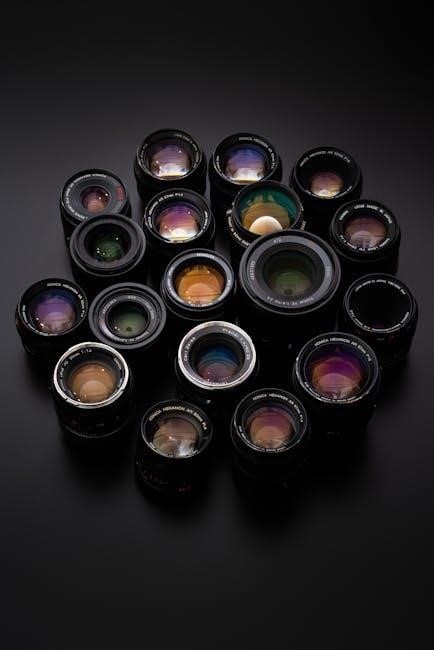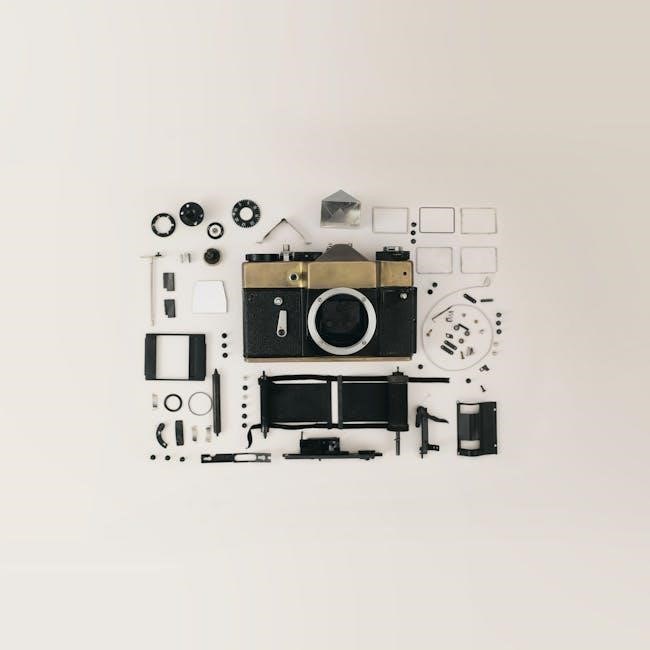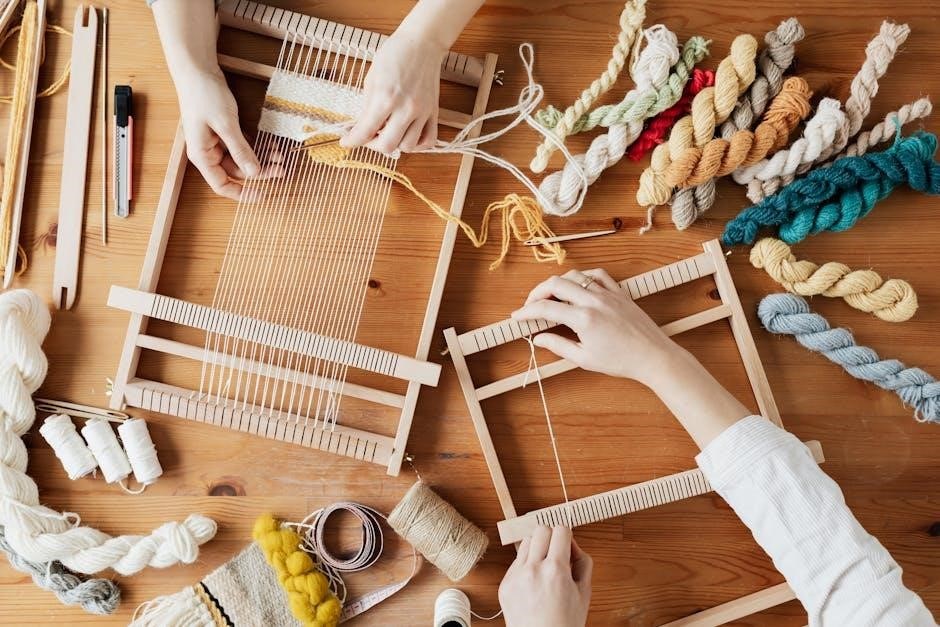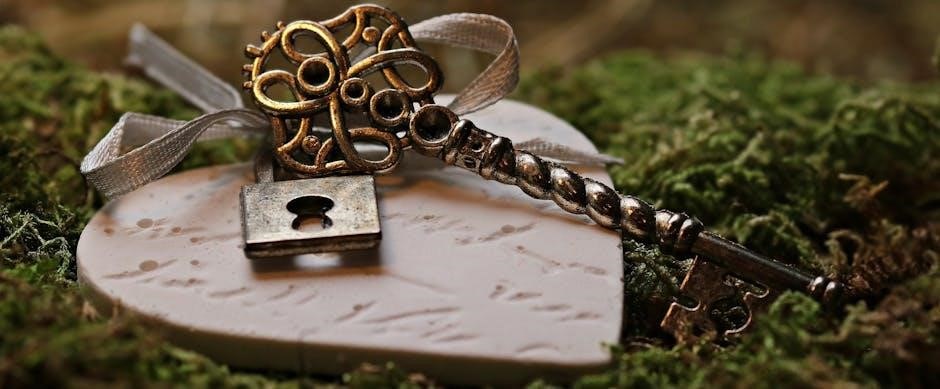manual scrobbler
Manual scrobbling is a method for music enthusiasts to track their listening habits when automatic tools fail. It involves entering song details like artist, track, and album manually to maintain accurate listening records. This practice is particularly useful for vinyl, radio, or offline playback. By manually scrobbling, users ensure their music history is precise and comprehensive, supporting artists and fostering music discovery. Tools like Open Scrobbler simplify the process, making it accessible for everyone passionate about their music library.
What is a Manual Scrobbler?
A manual scrobbler is a tool or method used to track and record music listening habits by manually entering song details. It allows users to input artist, track, album, and album artist information directly, ensuring accurate and personalized music history. This approach is essential for platforms like Last.fm, MusicBrainz, and Discogs, where precise data collection is key. Manual scrobblers are particularly useful for music played on vinyl, radio, or offline devices, where automatic tracking isn’t possible. By enabling users to log their listens manually, these tools help maintain a detailed and organized music library, supporting both personal enjoyment and artist recognition.
Why Manual Scrobbling is Important for Music Enthusiasts
Manual scrobbling is crucial for music enthusiasts as it allows precise tracking of listening habits, ensuring accurate music history and data collection. This method is vital for vinyl, radio, or offline playback, where automatic tracking fails. By manually entering details, users maintain a comprehensive and personalized library, which supports music discovery and artist recognition. It also fosters engagement, enabling fans to showcase their tastes and connect with like-minded listeners. Additionally, accurate scrobbling aids artists by reflecting genuine listener engagement, thereby supporting their careers. This practice ensures that every song played is accounted for, preserving musical memories and enhancing overall music appreciation.

How to Use a Manual Scrobbler
Using a manual scrobbler involves entering track details like artist, song, and album into a tool, ensuring accurate listening records. This method is ideal for vinyl or radio playback.
Step-by-Step Guide to Manually Scrobbling Songs
Manually scrobbling songs involves a straightforward process to ensure accurate tracking. First, identify the song details, including the artist, track name, and album. Next, open your preferred manual scrobbling tool, such as Open Scrobbler or Last.fm. Enter each piece of information carefully into the designated fields. Ensure the data is correct to avoid errors. Once all details are entered, submit the scrobble. For multiple tracks, repeat the process or use batch entry features if available. Timestamps can be added for precision. Regularly reviewing your scrobbles helps maintain a clean and accurate music history, supporting your favorite artists and enhancing your listening experience.
Entering Track Information: Artist, Track, Album, and Album Artist
When manually scrobbling, accurate track information is crucial. Start by entering the artist’s name, ensuring it matches the official spelling. Next, input the track title, verifying it against reliable sources like MusicBrainz or Discogs; The album field should reflect the specific release the song belongs to, while the album artist is essential for compilations or collaborations. Double-checking each detail prevents metadata errors and maintains consistency in your music library. Tools like Open Scrobbler often provide autocomplete features to simplify this process, reducing the risk of misspellings and ensuring your scrobbles are precise and meaningful for both personal tracking and artist support.
How to Handle Multiple Scrobbles at Once
Manually scrobbling multiple tracks at once requires organization and attention to detail. Use tools like Open Scrobbler to batch process entries, ensuring each track includes accurate timestamps for chronological accuracy. Create a spreadsheet or list with columns for artist, track, album, and album artist to streamline data entry; This method minimizes errors and saves time compared to entering each scrobble individually. Additionally, some platforms allow importing CSV files for bulk uploads, making the process even more efficient. By organizing your data beforehand, you can handle multiple scrobbles seamlessly and maintain a precise music listening history without overwhelming yourself with repetitive tasks.
Using Timestamps for Accurate Scrobbling
Timestamps are essential for accurate manual scrobbling, ensuring your listening history is chronological and precise. When manually entering tracks, include the exact time you listened to each song. Tools like Open Scrobbler automatically timestamp scrobbles, simplifying the process. Accurate timestamps help track your listening habits over time and ensure personalized recommendations. For offline listens, note the playback time manually to maintain consistency. This attention to detail enhances your music library’s accuracy and provides a clear record of your musical journey, making it easier to reflect on your listening patterns and discover new favorites based on your history.

Popular Tools for Manual Scrobbling
Popular tools for manual scrobbling include Open Scrobbler, Last.fm, MusicBrainz, and Discogs. These platforms allow users to manually enter song details, ensuring accurate music tracking and library maintenance.
Open Scrobbler: A Tool for Manual Music Tracking

Open Scrobbler is a versatile tool designed for manual music tracking, ideal for users who need to log songs played on vinyl, radio, or other offline sources. It allows users to manually enter detailed track information, including artist, track name, and album, ensuring accurate scrobbling. The tool is user-friendly, with a simple interface that makes it easy to input data. Open Scrobbler also supports timestamps, enabling precise tracking of when songs were played. This tool is particularly beneficial for music enthusiasts who value maintaining an accurate and comprehensive listening history. By using Open Scrobbler, users can ensure their music library remains organized and up-to-date.
Using Last.fm, MusicBrainz, and Discogs for Manual Scrobbling
Last.fm, MusicBrainz, and Discogs are powerful platforms that complement manual scrobbling by providing detailed music databases. Last.fm allows users to manually enter track information, ensuring accurate listening histories. MusicBrainz offers extensive metadata, helping users maintain precise records. Discogs, with its vast catalog, is ideal for scrobbling rare or obscure tracks. These platforms support manual scrobbling by offering robust search functionalities and corrections for misspellings. By integrating these tools, users can enhance their music libraries and ensure their scrobbling data is accurate and comprehensive. This combination is essential for music enthusiasts seeking to track their listening habits meticulously.

Benefits of Manual Scrobbling
Manual scrobbling ensures precise tracking of music listening habits, supports artists by accurately recording their work, and fosters music discovery through detailed listening histories and personalized insights.
Building a Precise Music Listening History
Manual scrobbling allows users to maintain an accurate and detailed record of their music listening habits. By entering song details like artist, track, and album manually, listeners ensure their history is precise. This method is especially useful for tracks played on vinyl, radio, or offline platforms where automatic scrobbling fails. Tools like Open Scrobbler simplify the process, enabling users to log songs with timestamps for accuracy. A precise history helps in discovering new music, supports artists by tracking their work, and provides personalized insights into listening preferences. This level of control ensures a comprehensive and authentic reflection of one’s musical journey over time.
Discovering New Music Through Manual Scrobbling
Manual scrobbling enhances music discovery by providing detailed insights into listening habits, enabling personalized recommendations. Platforms like Last.fm analyze scrobbled data to suggest similar artists or tracks, helping users explore new genres and bands. Engaging with metadata during manual scrobbling fosters a deeper connection with music, often leading to the discovery of lesser-known artists. Additionally, accurate tracking allows users to identify patterns in their tastes, guiding them toward unexplored musical territories. This process not only enriches their musical journey but also supports artists by accurately reflecting their work in listeners’ histories, creating a win-win situation for both creators and enthusiasts alike.
Supporting Artists by Accurately Tracking Their Music
Manual scrobbling plays a crucial role in supporting artists by ensuring their work is accurately tracked and credited. When users manually enter detailed metadata, such as artist names, track titles, and albums, it helps maintain precise records of music consumption. This accuracy contributes to fair royalties and visibility for artists, especially lesser-known ones. Platforms like Last.fm and MusicBrainz use this data to promote artists and connect them with fans. By taking the time to scrobble music manually, enthusiasts directly support creators, fostering a more equitable music ecosystem. Accurate tracking also helps artists understand their audience, aiding in better engagement and growth.

Platforms That Support Manual Scrobbling
Last.fm, MusicBrainz, and Discogs are popular platforms enabling manual scrobbling. They provide detailed metadata and music tracking, while tools like Open Scrobbler simplify the process for users.
Last.fm: The Ultimate Platform for Music Scrobbling
Last.fm stands out as the ultimate platform for manual scrobbling, offering a comprehensive solution for music enthusiasts. It allows users to manually enter detailed track information, including artist, track, album, and album artist, ensuring accurate metadata. Each scrobble is timestamped, providing precise listening records. Additionally, Last.fm features automatic correction of common misspellings, enhancing data accuracy. This platform is ideal for those who want to maintain a pristine music library, supporting their favorite artists by accurately tracking their music. With tools like Open Scrobbler, users can seamlessly scrobble songs and albums heard on the radio, vinyl, or other offline sources, making Last.fm an indispensable tool for dedicated listeners.
How to Manually Scrobble on MusicBrainz
MusicBrainz is a comprehensive platform for manual scrobbling, allowing users to maintain precise music libraries. To manually scrobble, users must enter detailed track information, including artist, track name, album, and timestamps. This ensures accurate metadata for songs played offline, such as vinyl or radio. MusicBrainz supports manual submissions, enabling listeners to track their music history meticulously. By manually scrobbling, users contribute to a centralized database, benefiting both themselves and the music community. This method is ideal for enthusiasts who value detailed and accurate music tracking, ensuring their listening habits are well-documented and accessible.

Tips for Effective Manual Scrobbling
Regularly update your scrobbles to maintain an accurate listening history. Ensure consistency by scrobbling at the same time each day, avoiding missed tracks and keeping your data organized.
Ensuring Data Accuracy When Manually Scrobbling
Accuracy is crucial for maintaining a reliable music listening history. Always verify artist names, track titles, and album details before scrobbling. Use timestamps to record when songs were played, ensuring chronological order. Avoid misspellings by cross-referencing with databases like MusicBrainz or Discogs. Double-check metadata for consistency, especially for albums with multiple editions. Regularly review your scrobbles to catch errors. Tools like Open Scrobbler can help streamline the process, but human oversight is essential. Inaccurate data can lead to a messy library and skewed music recommendations. By being meticulous, you preserve the integrity of your musical journey and support artists effectively.
Best Practices for Maintaining Your Music Library
Organizing your music library is essential for an optimal listening experience. Always ensure tracks are accurately labeled with correct artist, album, and genre information. Use databases like Discogs or MusicBrainz to verify details. Regularly update your library to reflect new listens and maintain consistency. Utilize tools like Open Scrobbler for manual entries, ensuring timestamps are precise. Avoid duplicate entries and standardize naming conventions. Organize tracks by genre, mood, or era for easier navigation. Backup your library periodically to prevent data loss. By following these practices, you create a well-curated collection that enhances music discovery and supports your favorite artists effectively.

Common Mistakes to Avoid
Misspellings, incorrect metadata, and forgetting to update scrobbles regularly are common errors. Ensure accurate entries and consistent updates to maintain precise tracking and avoid data inconsistencies.
Misspellings and Incorrect Metadata
Misspellings and incorrect metadata are common pitfalls in manual scrobbling, leading to inaccurate tracking and fragmented data. For instance, typos in artist names or album titles can create duplicate entries in your music history. Incorrect metadata, such as wrong album associations or mislabeled tracks, further compounds the issue. These errors make it difficult to analyze listening habits and discover new music. To avoid this, always double-check entries against reliable sources like MusicBrainz or Discogs. Tools like Open Scrobbler also offer auto-fill features to reduce mistakes. Consistency is key; ensure artist names, track titles, and albums are uniformly formatted to maintain a clean and precise music library.
Forgetting to Update Your Scrobbles Regularly
Forgetting to update your scrobbles regularly can lead to incomplete and inaccurate music listening records. Over time, this oversight can result in a fragmented and disorganized music history, making it difficult to track your listening habits or discover new music. Procrastination often leads to missed scrobbles, and the longer you wait, the harder it becomes to recall and manually enter past listens. To avoid this, set reminders or establish a routine for updating your scrobbles. Consistency ensures your music library remains precise and reflective of your true listening preferences, allowing you to fully benefit from manual scrobbling and its advantages for music discovery and artist support.

The Future of Manual Scrobbling
The future of manual scrobbling lies in AI-driven tools that simplify data entry and enhance accuracy, ensuring precise music tracking for dedicated enthusiasts while maintaining accessibility.

How AI and Automation Are Changing Manual Scrobbling
AI and automation are revolutionizing manual scrobbling by streamlining the process and reducing human error. Advanced algorithms now suggest metadata, auto-complete entries, and even correct misspellings, saving time and effort. Tools like Open Scrobbler leverage AI to identify tracks and populate details automatically, making manual scrobbling more efficient. Additionally, AI-driven systems can analyze listening patterns to provide personalized recommendations. While manual input remains essential for accuracy, automation handles repetitive tasks, ensuring a seamless experience. This blend of human oversight and technological advancement promises to enhance the precision and accessibility of manual scrobbling for music enthusiasts worldwide.
The Role of Manual Scrobbling in a Digital Music World
Manual scrobbling remains vital in a digital music world, offering precision and control over music tracking. While streaming platforms automate data collection, manual scrobbling allows users to correct errors, add missing tracks, and ensure accuracy, especially for offline or niche music; It bridges gaps in automated systems, letting enthusiasts maintain detailed, personalized listening histories. Platforms like Last.fm and MusicBrainz support this practice, enabling users to contribute to a collaborative music database. Manual scrobbling fosters a deeper connection to music, empowering fans to curate their experiences intentionally. This method complements digital tools, ensuring that every listen counts and supporting artists through accurate data representation.
Manual scrobbling empowers music enthusiasts to track their listening habits accurately, ensuring precise music history and supporting artists. It remains essential for offline and niche music experiences, enriching musical journeys.
Final Thoughts on Manual Scrobbling
Manual scrobbling is a testament to music enthusiasts’ dedication to tracking their listening habits with precision. While it requires effort, the payoff is a meticulously curated music history, offering insights into personal tastes and trends. Tools like Open Scrobbler simplify the process, making it accessible for everyone passionate about their music library. By manually entering song details, users ensure accuracy and support artists by logging their work. This practice, though time-consuming, fosters a deeper connection with music and encourages discovery. It’s a labor of love for those who value data integrity and the joy of maintaining a vibrant, personalized musical journey.
Encouraging Others to Try Manual Scrobbling
Manual scrobbling is a rewarding way to engage deeply with music and build a precise listening history. By sharing its benefits, such as discovering new artists and supporting favorites, enthusiasts can inspire others to try it. Highlighting tools like Open Scrobbler, which simplify the process, and the joy of connecting with a like-minded community, makes it appealing. Emphasizing how manual scrobbling enhances music discovery and fosters a sense of accomplishment can motivate others to embrace this method. It’s a fun, interactive way to celebrate music and share experiences, making it worth encouraging others to explore and enjoy the journey of manual scrobbling.
